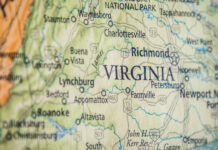Fears have been raised by Finland’s Institute of Health and Welfare (THL) over the government’s plan for a new gambling regime.
The Ministry of the Interior previously pursued responses from various government agencies and departments on a proposal to Finland’s gambling system by 2027.
It comes as part of the 2026 roadmap to end the monopoly held on both land-based and online gaming in Finland by state-owned Veikkaus Oy company. The government aims to open up the online gambling market to competition in 2027, a process supported by Vekkaus.
It’s a modernisation that has been boosted by reformists, with the case being made that Finnish authorities can’t control how much consumers engage with unlicensed online gambling sites.
However, THL, the leading research agency on public health and welfare under the Ministry of Social Affairs, has doubts about the proposed policy.
The agency has urged the government to take note of the impact of the introduction of a competitive licensing framework for gambling, which wouldn’t necessarily guarantee better protection for Finnish consumers.
THL acknowledges current issues in the Finnish gambling market, where Veikkaus controls 50% of the online market, while the rest is held by companies that can’t officially operate in Finland.
But THL believes that removing Veikkaus from online gambling might lead to a rise in problem gambling rates. Recent studies show that 4.2% of Finns, over 150,000 people, struggle with problem gambling or are at risk.
This is a significant increase from previous years when about 3% of the population faced serious gambling issues. Men are particularly affected, with 6.6% of them reporting serious gambling problems compared to 1.8% of women.
The government needs to ensure that policies and protections are in place to limit the most addictive and fast-paced forms of online gambling if the new regime is launched in 2027.











